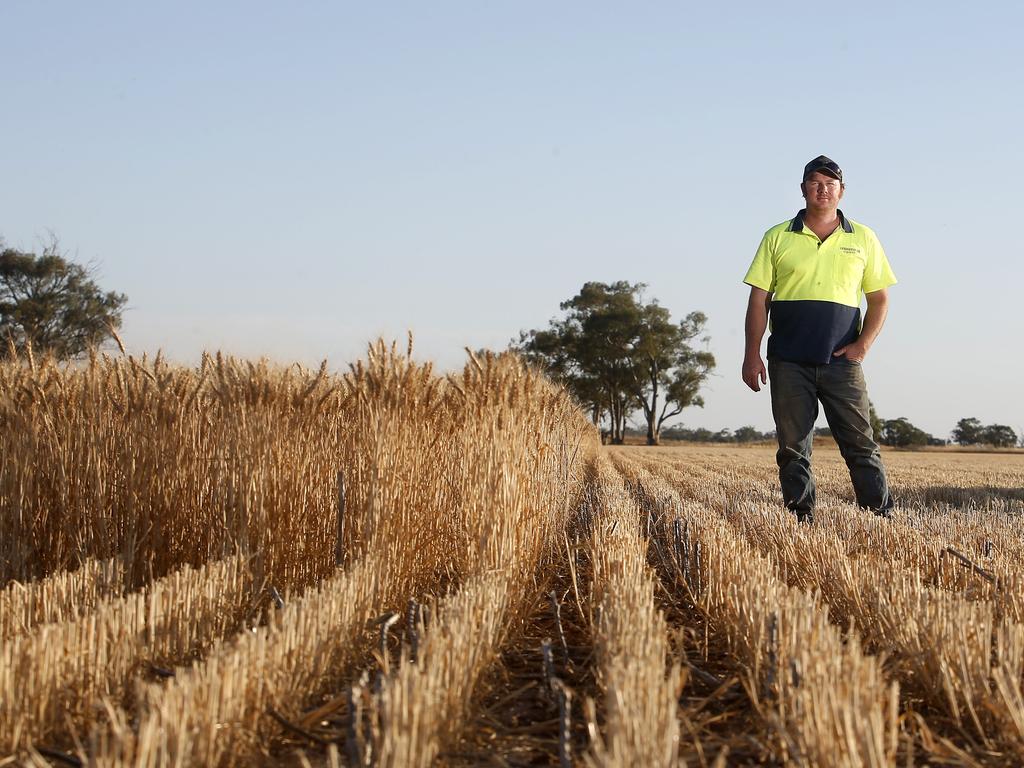Wheat and cotton farmers warned they will face Chinese sanctions
The government has been warned to expect a financial hit of more than $1b, with China sanctions set to target two more key industries.

Australian wheat and cotton farmers have been put on notice they are next in China’s firing line in a move that could further strain tensions between the two countries.
The Morrison government has been briefed to expect a $568m hit to the wheat industry, and $611m to the cotton industry, as Beijing plans to fulfil its $14b agriculture commitment to the Trump administration.
The disruption would take the total impact of Chinese trade sanctions to $7b since May.
Trade Minister Simon Birmingham said the government is looking to help industries targeted by Beijing through other markets.
“This pattern of behaviour that we have seen throughout 2020 in particular has been unacceptable in relation to the way China has engaged,” he told Today.
“It clearly is not in the spirit, and we don’t think the letter, of the commitments China has made to Australia through our Free Trade Agreement.”

He said the government had raised its issues directly with Beijing, but left open the option of lodging a formal complaint with the World Trade Organisation.
One Nation senator Pauline Hanson will push a motion calling for a boycott of Australian products. Mr Birmingham told 2GB Radio the government would not back the motion, but it would assess investments on a case-by-case basis regardless of its origin.
It comes as Beijing hit back at Mr Birmingham, after he told parliament on Wednesday the government had become “increasingly concerned” by China’s “potentially discriminatory actions targeted against Australia”.
“Australian Trade Minister’s so-called concerns about China’s adherence to ChAFTA (the China-Australia Free Trade Agreement) are totally unfounded. We hope Australia can do more to enhance mutual trust and bilateral co-operation,” a Chinese embassy spokesman said.
It also accused the government of rejecting ten Chinese investment projects on spurious national security grounds, and launching a raft of anti-dumping investigations against Chinese products.

“These measures, inconsistent with the letter and spirit of ChAFTA, have undermined Chinese companies’ interests and brought negative impact on economic and trade co-operation between the two countries,” it read.
On Wednesday, lamb joined a long list of Australian products sanctioned by Beijing, with meat from two exporters suspended from the Chinese market. The two businesses had been briefly shutdown due to COVID-19 outbreaks.
China has ramped up its trade attacks on Australia since the Morrison government pushed for an independent inquiry into the origins of the pandemic.
Australian barley, beef and timber are among the industries to have faced tariffs, suspensions or delays since the stoush began.
China has also threatened Australia’s international student market, and slapped tariffs of up to 200 per cent on the country’s winemakers.
The crisis was exacerbated in November, when a Chinese foreign ministry spokesman tweeted a doctored image of an Australian soldier holding a knife to the neck of an Afghan child.
China refused to Canberra’s demand take down the post and apologise, saying Australian government had to reckon with the damning Afghan war crimes report.



